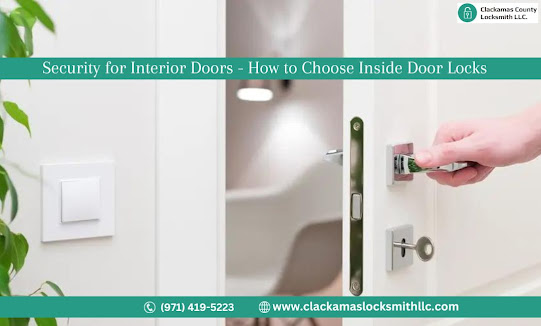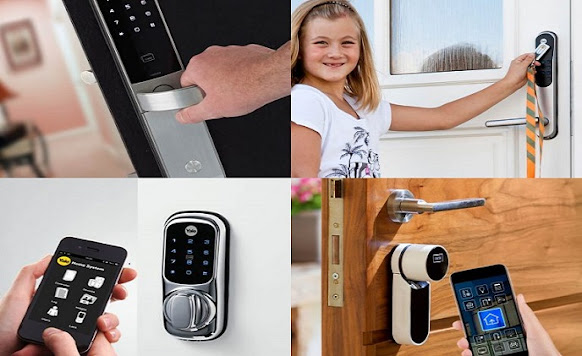Security for Interior Doors - How to Choose Inside Door Locks
When it comes to home security, we often focus on exterior doors and windows, but the importance of securing interior doors should not be overlooked. Interior doors play a crucial role in providing privacy and protecting certain areas of your home.
Choosing the right inside door locks can enhance your overall security and contribute to the safety of your belongings and loved ones. Here are key considerations to guide you in selecting the most suitable locks for your interior doors.
1. Understand the Types of Interior Door Locks:
Privacy Locks: These locks are commonly used for bedrooms and bathrooms. They provide basic privacy but can usually be unlocked from the outside with a generic tool.
Passage Locks: Designed for closets and other areas where privacy is not a concern, passage locks offer simple latching mechanisms without the need for a key.
Keyed Entry Locks: While more common on exterior doors, keyed entry locks can also be used on interior doors where added security is desired. They require a key to unlock from either side.
Electronic or Smart Locks: For a modern touch, consider electronic or smart locks that can be controlled via a smartphone app. These locks often provide additional features such as remote access and activity monitoring.
2. Consider Door Material and Type:
Wooden Doors: Wooden doors are common for interior use. Ensure that the lock you choose complements the door material and that it's properly installed to prevent splintering or weakening of the wood.
Hollow Core Doors: These doors are lightweight and less secure than solid doors. Choose locks that are appropriate for hollow core doors, focusing on durability without compromising the door's integrity.
Sliding Doors: If you have sliding interior doors, such as those commonly used for closets, consider specialized locks designed for this type of door to prevent unauthorized access.
3. Balance Security and Convenience:
Accessibility: Consider who needs access to specific areas of your home. For bedrooms, a privacy lock may be sufficient, while rooms containing valuables might benefit from keyed entry locks.
Ease of Use: Choose locks that are easy for authorized individuals to use regularly. Complex mechanisms may lead to accidental lockouts or frustration.
4. Installation and Maintenance:
Professional Installation: While some locks are suitable for DIY installation, others may require professional expertise. Ensure that locks are installed correctly to maximize their effectiveness.
Regular Maintenance: Like any mechanical or electronic device, locks require periodic maintenance. Check and lubricate the locking mechanisms to ensure smooth operation and longevity.
5. Additional Security Features:
Anti-Pick and Anti-Bump Technology: Look for locks with features that deter picking and bumping, common techniques used by intruders to compromise traditional locks.
Reinforcement Plates: Consider reinforcing the door frame with plates that add strength to the locking system and help prevent forced entry.
Conclusion:
The security of your interior doors is an essential aspect of overall home safety. By understanding the types of locks available, considering door materials, balancing security with convenience, ensuring proper installation, and exploring additional security features, you can make informed decisions to protect your home and its occupants.
Invest in quality locks that suit your specific needs, contributing to a secure and comfortable living environment.




Comments
Post a Comment